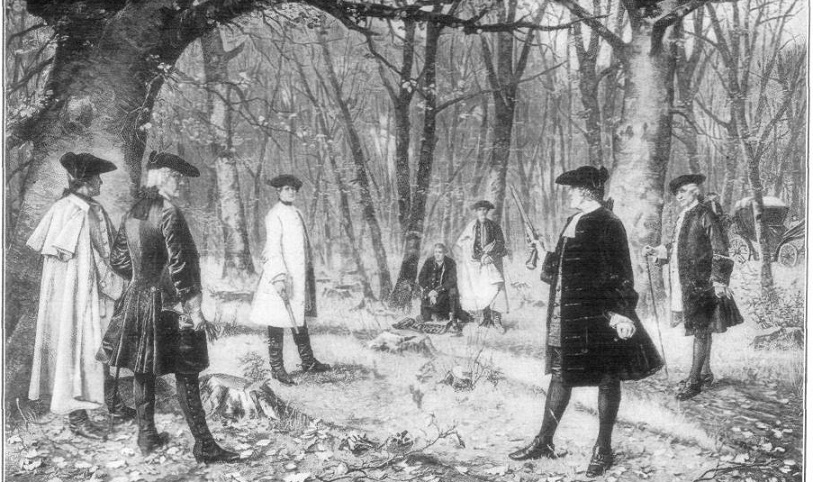.
Me and My Pronouns
Pronouns—I’ve gotten rather tired of them.
Not quite so tired, though, as of being queried
as to mine. “He,” “him,” “his”—why can’t I hem
them up, the lot of them, and have them buried?
I hereby put my foot down: from now on
I’ll have not one pronoun refer to me.
Your privilege to use any is now gone:
it’s “Julian” or else “Julian’s” only, see?
Or better, I should say that I don’t care—
let “Julian’s” be “his,” “hers,” or even “its”
(that label used for kids—yuck!). But beware,
you ask me which, I may blow you to bits!
Any or none, but never ask. (Some fool
Will no doubt try. I’ll face him/her/them/hem/it in a duel.)
.
.
Julian D. Woodruff, who contributes poetry frequently to the Society of Classical Poets, writes poetry and short fiction for children and adults. He recently finished 2020-2021, a poetry collection. A selection of his work can be read at Parody Poetry, Lighten Up Online, Carmina Magazine, and Reedsy.















Julian; Thank you for expressing how so many Americans really feel about idiotic pronouns. I have to say, I have never been asked what my pronouns are—– which is probably a very good thing.
Whenever anyone tells you that you must change your proper diction choices for ideologically driven new ones, you are dealing with an officious and dictatorial scumbag. I don’t care what political party, church, pressure group, or club he represents — or how piously mealy-mouthed he is when he talks to you. Just ignore him, and speak standard English to him.
Notice that I use the generic “he” and “him” as a universal marker for a sexually unidentified person, which is the proper form in good English. Even just doing this is a way to fight back publicly. It tells your interlocutor (and anyone else listening) that you don’t give a swiving hump about his ideology.
I have some choice nouns for those who seek to undermine the English language with a spurious assault on pronouns. Well intentioned and well done.
To paraphrase Queen Victoria, “We are most amused.”
The formality of the sonnet curbs the informality of words that could easily turn into a rant. Good restraint, Julian, and excellent use of an outbursting line to conclude. The comment mechanism does not want me to use “outbursting,” but what does it know!
This is great fun and so, so timely! Thank you, Julian. When asked for my pronouns I now answer qwertyuiop.
Funny! I laughed out loud.
The whole pronouns thing is stupid and inane. It’s clearly the left trying to shame us into talking and therefore thinking like them. I fight back by using the universal he/him/his like Joseph Salemi. I stopped using the singular they years ago because of the pronoun craze.
Thank you, thank ye, thank ya, thank y’all. The pronoun problem is one glaring example of the serious madness that has overtaken society at large. When will it (?) end?
There’s simply no point, is there, in denying
that most folks mess up pronouns without trying.
Or so my mom once told my sis and I;
now me and sis just shake our heads and sigh.
I will concede we all say “Hi, it’s me.”
“It’s I” just grates, I’m sure you will agree.
And if “c’est moi” will do in France, I say
its English parallel must sound okay.
But that’s the limit. “They,” when just one’s meant
to me sounds like a highway accident.
I wonder whether our pronoun malaise,
in which we chafe at what another says
(or are encouraged daily so to do),
was planned by one who finds these statements true,
but is the masses’ self–appointed lover
and so devised a way that all could cover
their ignorance of speech’s smallest part
through its profusion, making them feel smart.
Your subsequent poem reinforces, amplifies, and provides a wonderful supplement as creative and condemning as the first. Great job!
Finally, Julian, someone who takes pronouns personally! The next time you want to refer to me, please refer to them instead. I have mixed feelings.
Here in Ireland you might hear upon two persons greeting one another:
“Is that yourself, or the other fella?” and to which the reply might be “Neither, tis himself.”